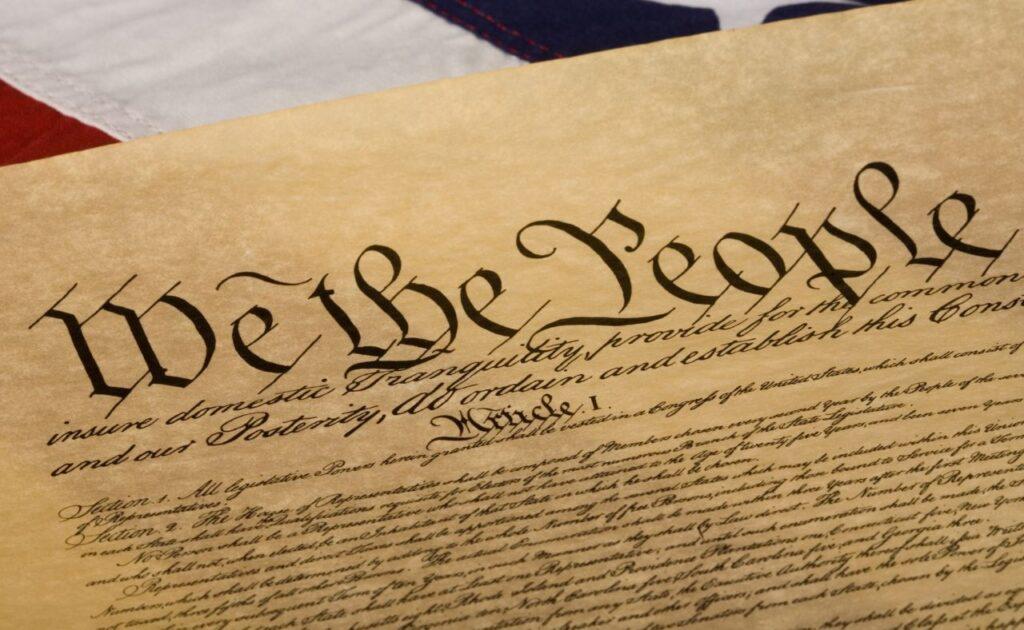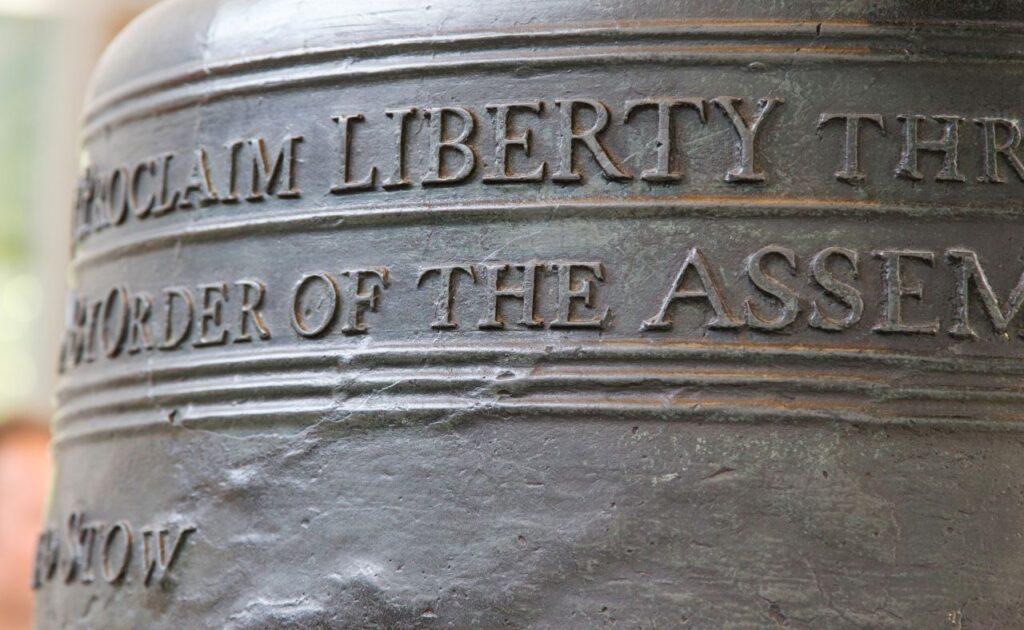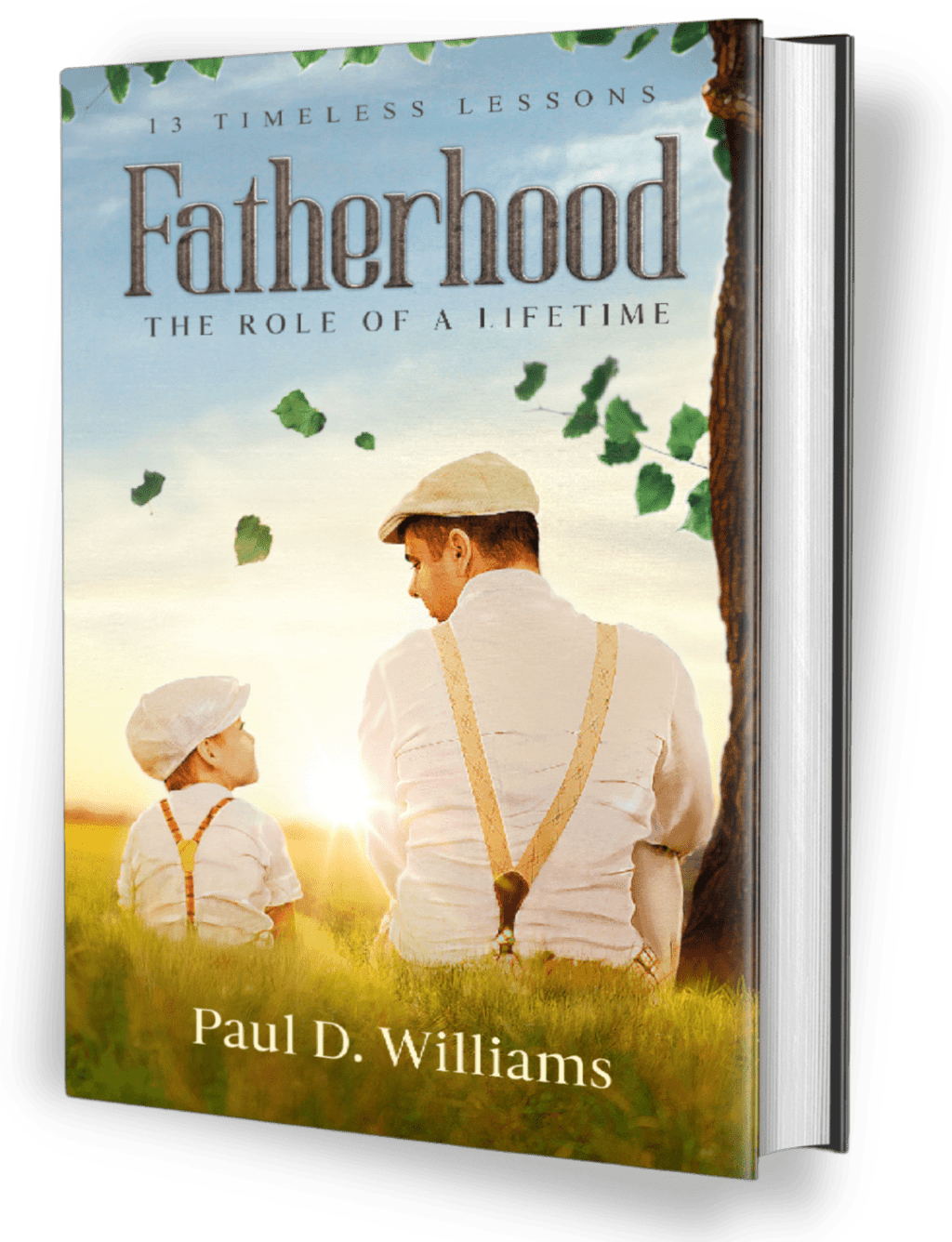I have always loved the 4th of July. Placed smack dab in the middle of summer, most celebrations are graced by clear blue skies and bright sunshine as if to remind us of the light that has shone on our nation and our liberties.
Whether it be flag-draped porches, John Phillip Souza marches, or backyard picnics with hamburgers, corn on the cob and apple pie, nothing says Americana like the 4th of July. It is quaint, small-town celebrations and grand fireworks over the Capitol at the same time. The 4th of July is timeless.
Some of my fondest recollections of the 4th of July are from my early years of Riverton, Utah’s “Town Days” celebration. A cornucopia of small-town tradition, the festivities kicked off on the eve of the Fourth with the traditional small-town parade complete with candy-throwing dignitaries, little league baseball teams, marching bands, and a slew of kids riding bicycles loaded with streamers.
The next day began with a sunrise breakfast and flag ceremony and concluded with a firework show that was guaranteed to have a few warning shots sprayed into the crowd. Sandwiched in between all this were carnival rides, a little league baseball game, and a horseshoe throwing contest.
The food for Town Days was the ultimate in picnic cuisine—hamburgers and hot dogs grilled in Riverton Park’s mess hall, a building with a cinderblock base topped with white painted wooden slats and shutters. Riverton’s Fourth of July celebration was truly a sea of old-time Americana.

The most important piece of the 4th however is, and should be, a recollection of what happened on that day in 1776. The Second Continental met in Philadelphia and voted to approve independence on July 2, 1776.
Two days later, on July 4, 1776, they adopted the Declaration of Independence. We have the benefit of time and history; in short, we know how it played out.
However, those who sacrificed had no such assurances. The freedoms we enjoy were paid for at a price and they must be preserved at a price.
In 1774, John Adams, the future second President of the United States, made the journey from his home in Quincy, Massachusetts to Philadelphia to take his place as a delegate to the First Continental Congress.
As he prepared to leave home, he despaired over the inexperience of his countrymen compared to the worldly accomplishments of the British.
Adams himself had never traveled out of New England, and his only political experience was limited to a stint in the Massachusetts legislature that lasted less than a year.
As he considered the work that was to come and the possibility of facing down the greatest power in the world, Adams wrote, “We have not men fit for the times. We are deficient in genius, education, in travel, fortune—in everything. I feel unutterable anxiety.”
Looking back through the lens of history, it’s hard to imagine such words coming from a man who was part of a group of individuals who would come to be known as some of the greatest and brightest that ever lived.
And yet his prognosis was mostly accurate. The British Empire of the eighteenth century was the envy of the world. Its military and economy were strengthened by colonies around the globe, and they were educated, well-traveled, and accomplished.
The colonies of 1700s America were inhabited by people whose lives and viewpoints seldom saw anything beyond their own colony’s borders, let alone the sophisticated capitals of Europe.
However, these were men and women who were bound by determination and a just cause. These individuals came together and seized what they saw as a special moment in the history of the world. Personal gain or ulterior motives had to come second to the common good of everyone.
Those who pursued independence did so with the knowledge that traitors to the English Crown were hung. The motto “Live free or die” was not mere words. The selfish individual looking for self-aggrandizement would certainly not take such a risk.
Somehow these colonists saw this moment as bigger than themselves, and their ardent desire to contribute to that moment drove their actions.
After years of seeking to ease London’s increasingly burdensome policies, they determined that independence, the point of last resort, was the only answer. Once this group of “deficient” men came to that conclusion, the die was cast.
They saw what had to be done for them, their families, their countrymen, and the world. Their devotion to making this contribution enabled them to become “men fit for the times.”

Through our history as a nation, each succeeding generation of Americans has had to work to grow our nation and maintain our liberty while sacrificing for the common good of the nation. The early days of our republic were difficult, and progress came slowly.
In today’s world, emerging democracies can see what we have now through immediate exposure in the media and social networking. They see it and want it immediately without realizing that America’s greatness isn’t in possessions and lifestyle.
It came from an inspired and sound set of principles and beliefs that created an environment where the bastion of freedom can reward everyone. It also required work, patience, sacrifice, and a commitment to the ideals that made it available.
What the world sees now has been in the making for over two hundred years.
These ideals have endured and our liberty has held firm because our ancestors came together to preserve something greater than themselves time after time after time.
The War of 1812, the Mexican War, the Civil War, financial panics of the late 1800s, the Spanish American War, World War I, the Great Depression, World War II, wars and conflicts in Korea and Vietnam, and civil rights movements have all tested the metal of the American people.
Our heritage is rich and has a foundation that is far deeper than the world’s despots can comprehend. It is not taken away nor is it given freely; it is earned by those who are willing to pay the price and kept by those who understand that they too must pay a price and contribute by passing along this heritage to the next generation.
The signing of the Declaration of Independence opened the doors to The American Revolution, a war that would last five long years.
Six years after the colonists prevailed, a new Congress convened in Philadelphia to create a stronger nation and government.
The United States Constitution, with the government structure that endures today, was the result.
At the close of that Constitutional Convention in 1787, Dr. Benjamin Franklin gave one last reminder to each generation of our obligation to contribute, to remember the histories of sacrifice, and maintain what we’ve been given.
As Franklin walked down the steps on the final day, a group approached him and asked, “Well Doctor, what have we got, a republic or a monarchy?” Franklin replied, “A republic, if you can keep it.”
As we celebrate our independence, may we also remember that the continued success of America is wholly dependent upon our ability to preserve and keep our republic and that it is up to us all to act for the common good of all mankind.
Read more stories and learn valuable lessons from the book Fatherhood: The Role of a Lifetime.


